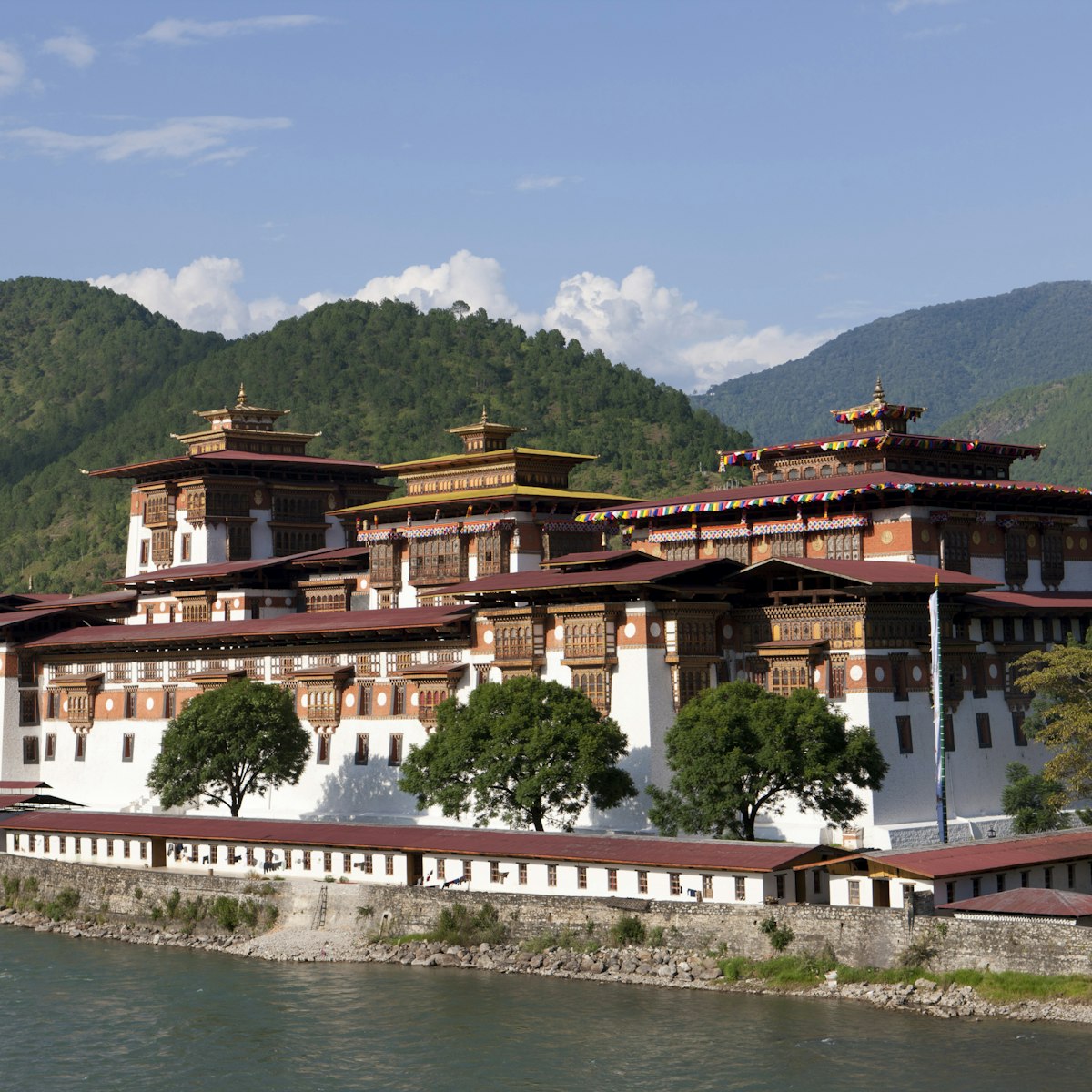For a fabulous trip into the dreamlike miracle world of Bhutan's sacred geography, budget a day for a hike up to one of Bhutan’s most famous ney (sacred sites). The focal point of the walk is a venerated ‘floating’ statue of tantric goddess Dorje Phagmo (Vajravarahi), who is said to have flown here from Tibet and turned into a statue, but it's the pilgrim trails winding up to the complex that are the real attraction to most visitors.
The three- to four-hour walk to the temple follows a beautiful river and passes dozens of neydo or sacred natural rock carvings connected to the activities of Guru Rinpoche and his consorts. Unfortunately, a swath of forest was recently cleared to extend electricity to the monks. After two hours or so, a side valley enters from the left and you can spy the lhakhang above you. Shortly afterwards a kora (circumambulation) path branches left up the side valley towards a waterfall, before ascending past sin tests, ladders, ledges, meditation caves and natural stone pools to reach the temple.
The main shrine is guarded by police and home to Dorje Phagmo (Vajravarahi), recognisable by the sow’s snout behind her right ear. An attendant monk will open a little door under the statue and pass a 10-ngultrum note under her foot to prove that the statue floats unsupported by the ground.
A further 10-minute walk behind the monastery leads to a small prayer-flag-draped waterfall and pool connected to Guru Rinpoche. It’s then a two-hour walk back to the car park, which is an hour-long drive from Paro up the Dop Shari valley. You’ll need three-quarters of a day for the excursion, but it’s well worth it.






